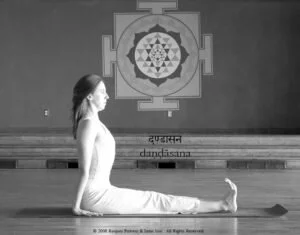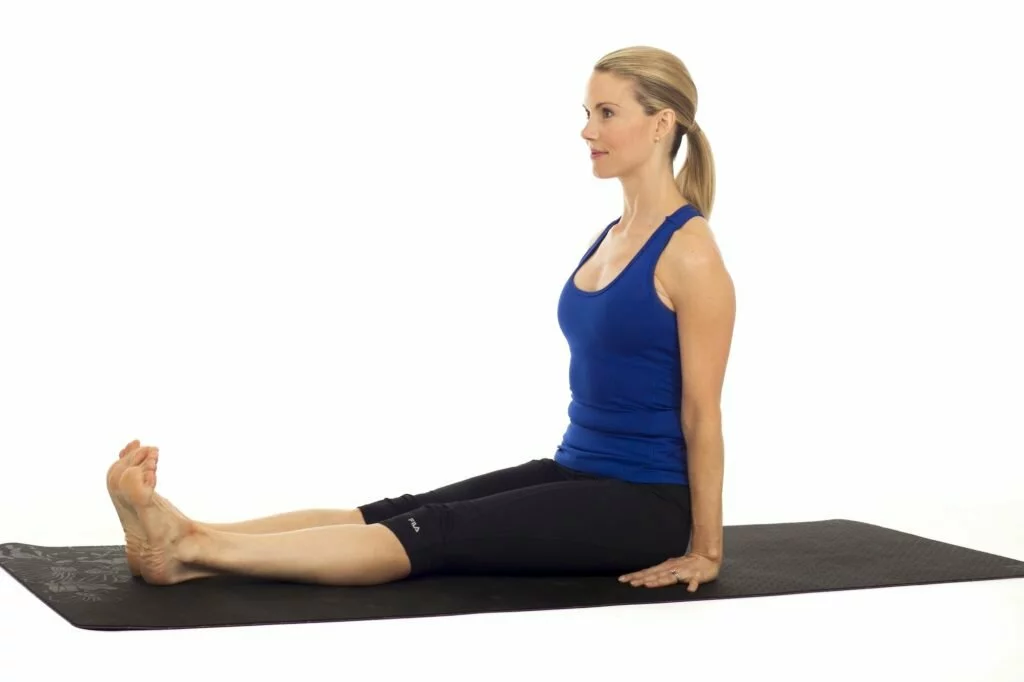 Dandasana (IPA: [dəɳɖɑːsənə] dahn-dah-sah-nah; Sanskrit: दण्डासन; IAST: Daṇḍāsana) or Staff Pose is an asana.
Dandasana (IPA: [dəɳɖɑːsənə] dahn-dah-sah-nah; Sanskrit: दण्डासन; IAST: Daṇḍāsana) or Staff Pose is an asana.
The name comes from the Sanskrit words Danda (दन्द, Danda) meaning “stick”, and Asana (आसन, Āsana) meaning “posture”.
The foundation of all seated yoga asanas – forward bends and twists.
To achieve this asana, begin in a seated position with the legs extended forward. The palms or the fingertips (if the palms don’t reach) should be rested on either side of the body. The upper-body should be extending upward through the crown of the head, and the back should be completely perpendicular to the ground (as though sitting against a wall). If this is not possible, one may want to use a block underneath one’s sitting bones to reduce the intensity in the hamstring muscles. The entire core should be engaged and ujjayi breath active throughout this asana. The legs should be squeezing together, and the toes should be pointing inwards toward the body. It may even be possible to create space between the heels and the ground by activating the leg muscles.
This asana is usually followed by Paschimottanasana
This asana is believed to help improve digestion, prevent sciatic pain, stretch and activate the muscles of the legs, and prevent tiredness in the feet and calf muscles.

